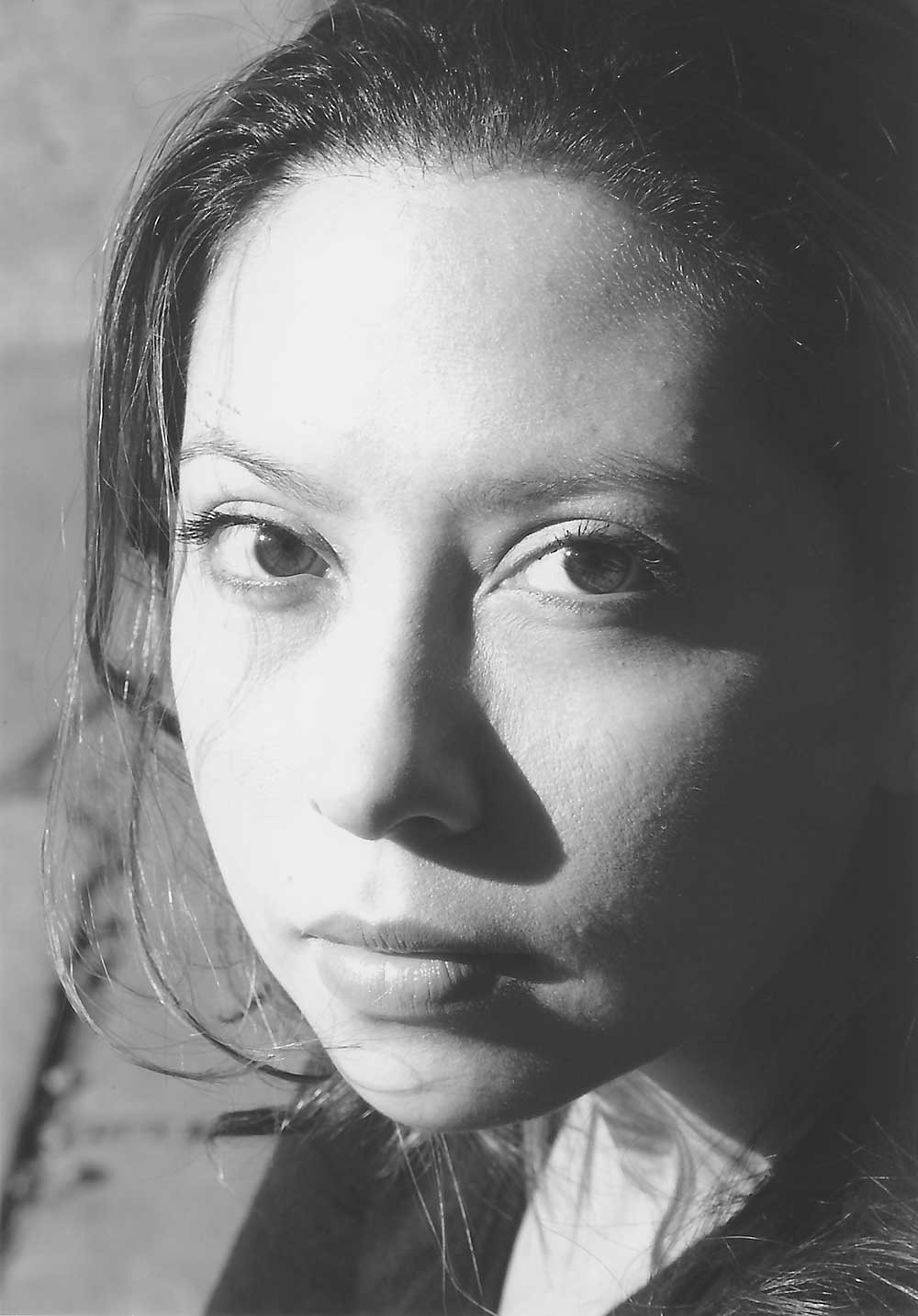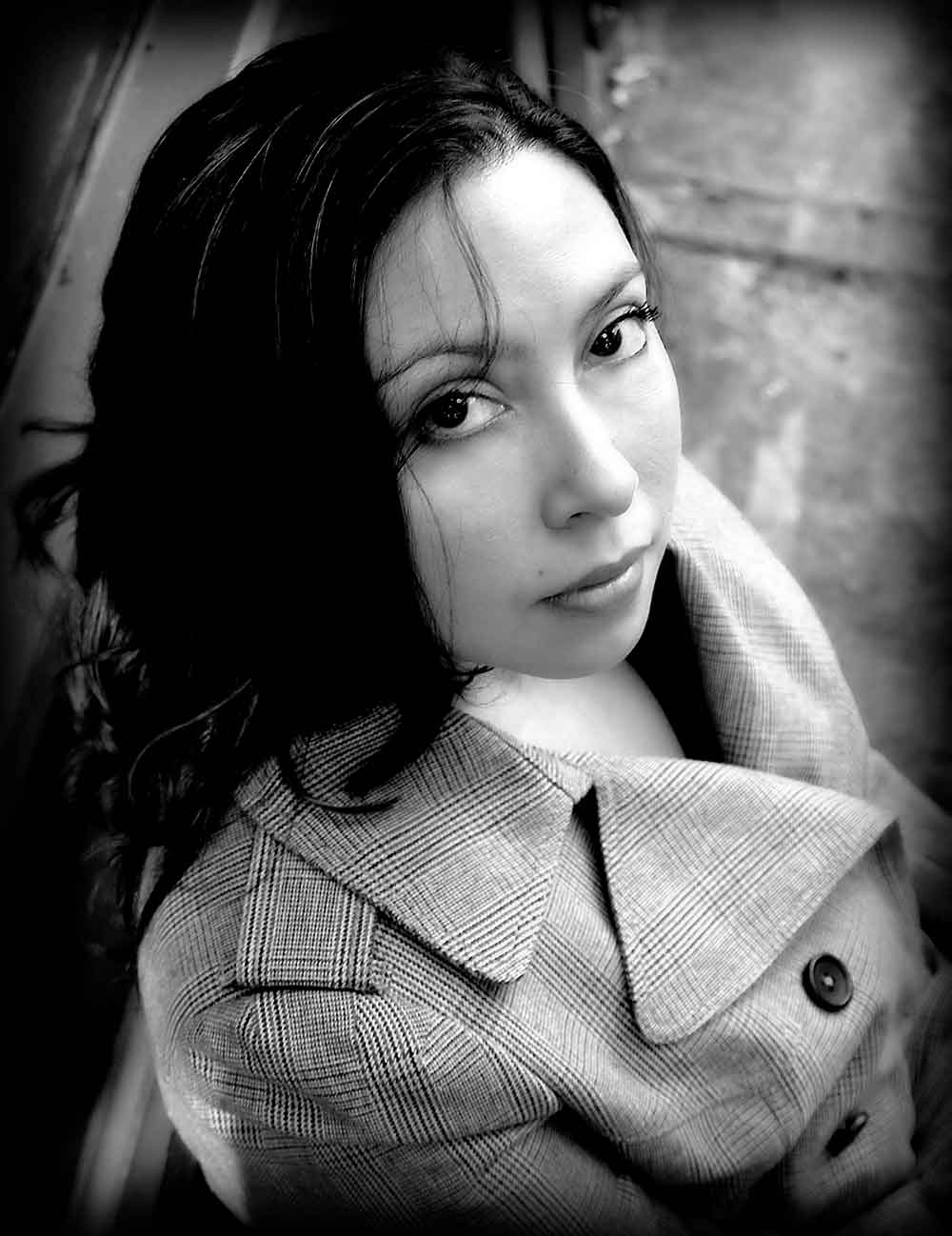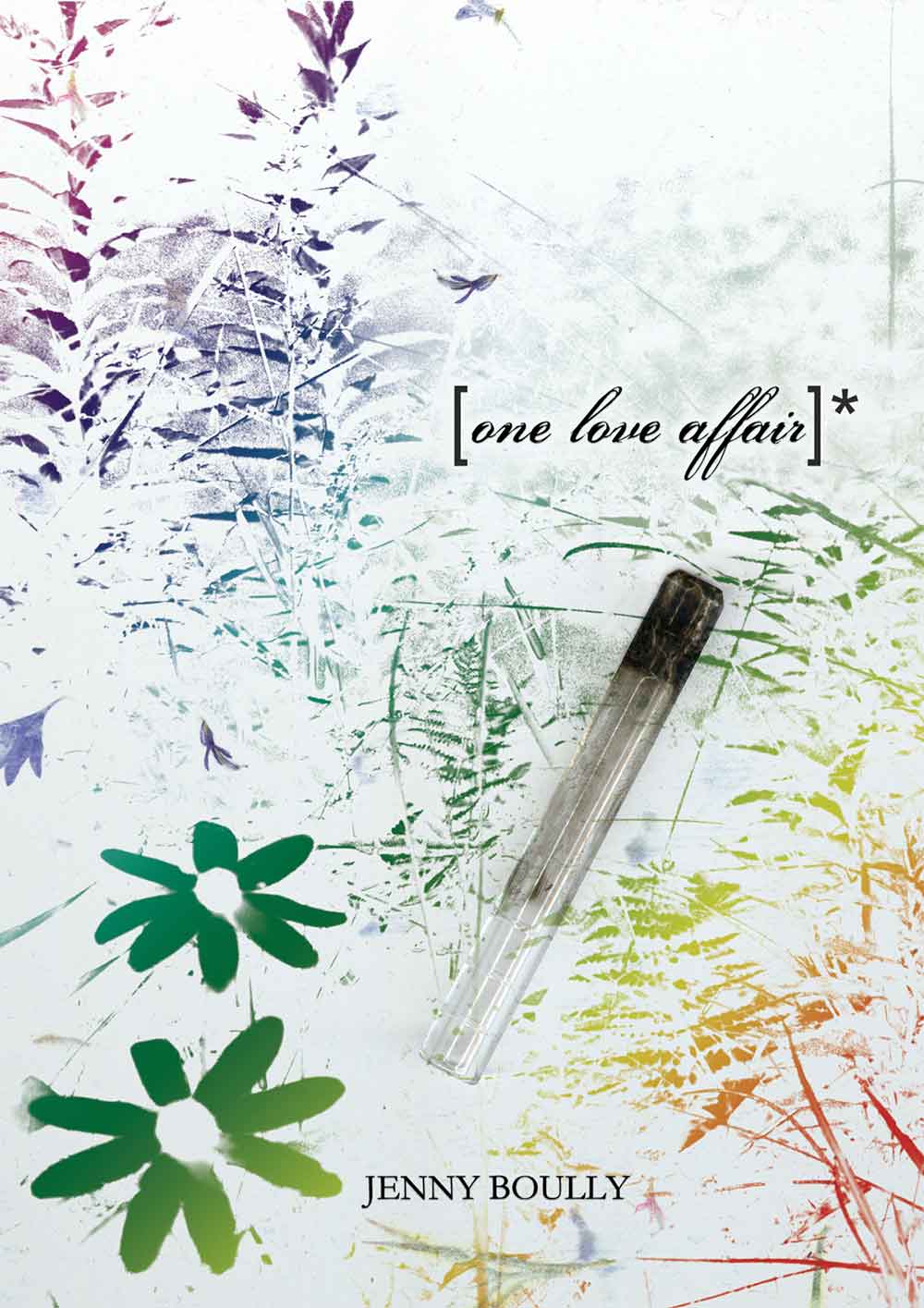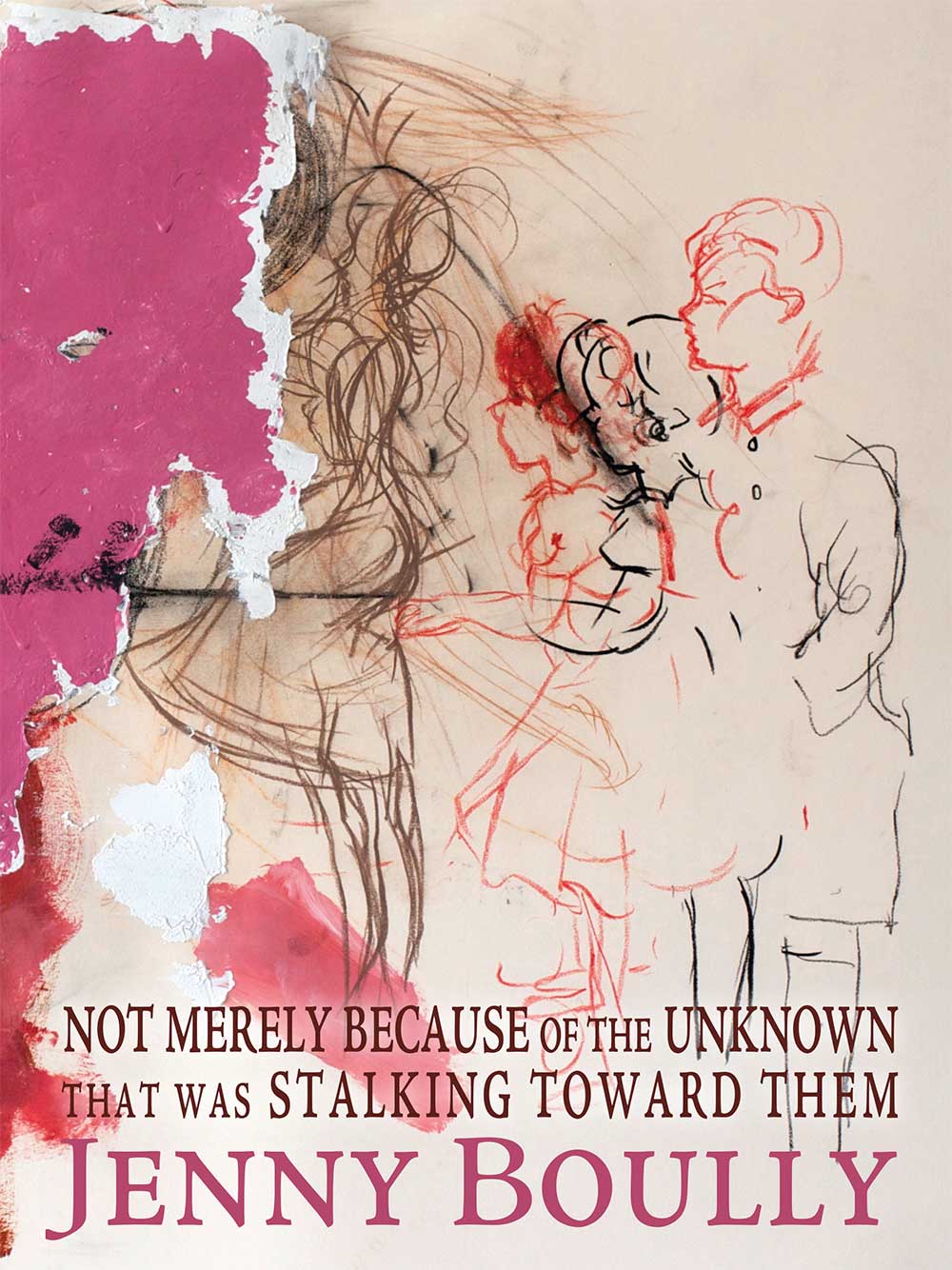Jenny Boully
Jenny Boully is the author of of two Tarpaulin Sky titles, [one love affair]* and not merely because of the unknown that was stalking toward them, as well as of the mismatched teacups, of the single-serving spoon (Coconut Books), The Book of Beginnings and Endings (Sarabande Books), and The Body: An Essay (Essay Press, first published by Slope Editions). Her chapbook of prose, Moveable Types, was released by Noemi Press. Her work has been anthologized in The Best American Poetry, The Next American Essay, Great American Prose Poems: From Poe to the Present, and other places. Born in Thailand, Jenny was reared in Texas by parents who farm and fish. She attended Hollins University, where she double majored in English and philosophy and then went on to earn her MA in English Criticism and Writing. At the University of Notre Dame, she earned an MFA with a poetry concentration. She earned a Ph.D. in English from the Graduate Center of the City University of New York. Jenny lives in Chicago, Illinois with her husband and daughter and teaches at Columbia College Chicago.


Jenny Boully
Jenny Boully is the author of of two Tarpaulin Sky titles, [one love affair]* and not merely because of the unknown that was stalking toward them, as well as of the mismatched teacups, of the single-serving spoon (Coconut Books), The Book of Beginnings and Endings (Sarabande Books), and The Body: An Essay (Essay Press, first published by Slope Editions). Her chapbook of prose, Moveable Types, was released by Noemi Press. Her work has been anthologized in The Best American Poetry, The Next American Essay, Great American Prose Poems: From Poe to the Present, and other places. Born in Thailand, Jenny was reared in Texas by parents who farm and fish. She attended Hollins University, where she double majored in English and philosophy and then went on to earn her MA in English Criticism and Writing. At the University of Notre Dame, she earned an MFA with a poetry concentration. She earned a Ph.D. in English from the Graduate Center of the City University of New York. Jenny lives in Chicago, Illinois with her husband and daughter and teaches at Columbia College Chicago.

[one love affair]*
by Jenny Boully
ISBN 0977901904
Fiction/Poetry/Lyric Essay
5″x7″, 76 pp, pbk, 2006
Voted Best Book-Length Poem at Coldfront Magazine
[one love affair]* meditates on mud daubers, Duras, and the deaths of mentally ill and drug-addicted lovers, blurring fiction, essay, and memoir in an extended prose poem that is as much a study of how we read as it is a treatise on the language of love affairs: a language of hidden messages, coded words, cryptic gestures, and suspicion.
As with Jenny Boully’s debut book The Body (2002), [one love affair]* is full of gaps and fissures and “seduces its reader by drawing unexpected but felicitous linkages between disparate citations from the history of literature,” a work that is “filled with the exegetical projection of our own imagination” (Christian Bok, Maisonneuve). Told through fragments that accrete through uncertain meanings, romanticized memories, and fleeting moments rather than clear narrative or linear time, [one love affair]* explores the spaces between too much and barely enough, fecundity and decay, the sublime and the disgusting, wholeness and emptiness, love and loneliness in a world where life can be interpreted as a series of love affairs that are “unwilling to complete.”
A genre-bending back-pocket book. . . . Gritty and intellectual . . . addictive and soothing . . . fitting for just about anyone’s bookshelf. . . . You’re reading the book for second, third, and fourth time. (John Deming, Coldfront) Boully’s sentences are a joy in and of themselves; they move lushly towards the period, transversing commas, semicolons, and colons to accrue and sediment in our own minds. (Rattle) Boully’s fluid, lyrical writing makes what could be a difficult, intimidating read instead a delightful one. . . . Playful engagement with narrative levels of reality (poems within poems, stories within stories). I highly recommend it, especially if you’re looking for a way into the “trans-genre” of prose poetry. (Elisa Gabbert, Open Letters Monthly) Her fresh style challenges the ways in which we construct narratives and read texts . . . and ultimately leaves us wanting more, more, always more Boully. (Catherine Paquette, Matrix) Boully has not only written the speaker’s one love affair, she has written our collective love affair. (Michael Rerick, CutBank Poetry) Boully’s language is accretive and lyrical. It is clear, feels clean in the mouth and sweet in the ear. . . . One begins to feel there another form embedded within the prose, though not a poetic form as much as the formed outline of a lover’s body, a book one has loved, one lover in a line of lovers, lying in the same bed as the former others. (Galatea Resurrects) Aside from the value of her incidental observations and asides, which are as sharp and well-made here as they are in The Body, the greatest virtue of [one love affair]* is Boully’s willingness to admit the personal and the narrative in such a way that doesn’t reinforce those very errors that make heartbreak in actual (if there is such a thing) love affairs inevitable. (Teresa Carmody, The Constant Critic)
A genre-bending back-pocket book. . . . Gritty and intellectual . . . addictive and soothing . . . fitting for just about anyone’s bookshelf. . . . You’re reading the book for second, third, and fourth time. (John Deming, Coldfront) Boully’s sentences are a joy in and of themselves; they move lushly towards the period, transversing commas, semicolons, and colons to accrue and sediment in our own minds. (Rattle) Boully’s fluid, lyrical writing makes what could be a difficult, intimidating read instead a delightful one. . . . Playful engagement with narrative levels of reality (poems within poems, stories within stories). I highly recommend it, especially if you’re looking for a way into the “trans-genre” of prose poetry. (Elisa Gabbert, Open Letters Monthly) Her fresh style challenges the ways in which we construct narratives and read texts . . . and ultimately leaves us wanting more, more, always more Boully. (Catherine Paquette, Matrix) Boully has not only written the speaker’s one love affair, she has written our collective love affair. (Michael Rerick, CutBank Poetry) Boully’s language is accretive and lyrical. It is clear, feels clean in the mouth and sweet in the ear. . . . One begins to feel there another form embedded within the prose, though not a poetic form as much as the formed outline of a lover’s body, a book one has loved, one lover in a line of lovers, lying in the same bed as the former others. (Galatea Resurrects) Aside from the value of her incidental observations and asides, which are as sharp and well-made here as they are in The Body, the greatest virtue of [one love affair]* is Boully’s willingness to admit the personal and the narrative in such a way that doesn’t reinforce those very errors that make heartbreak in actual (if there is such a thing) love affairs inevitable. (Teresa Carmody, The Constant Critic)
not merely because of the unknown
that was stalking toward them
by Jenny Boully
Fiction/Poetry/Lyric Essay | Paperback | 80 pages | June 2011
Cover art by Noah Saterstrom
A Small Press Distribution Bestseller in Poetry
Read excerpts in Academy of American Poets | Fourth Genre: Explorations in Nonfiction | Requited | Shampoo

In not merely because of the unknown that was stalking toward them, Jenny Boully presents us with a “deliciously creepy” swan song from Wendy Darling to Peter Pan. As in her previous book [one love affair]*, Boully reads between the lines of a text—in this case J. M. Barrie’s Peter and Wendy—and emerges with the darker underside, with those sinister or subversive places merely echoed or hinted at. Funny, sinister, and heartbreaking by turns, not merely because of the unknown that was stalking toward them explores, in dreamy and dark prose, how we love, how we pine away, and how we never stop loving and pining away. Her Neverland is bawdy, bursting, and beautiful.

not merely because of the unknown that was stalking toward them
by Jenny Boully
Fiction/Poetry/Lyric Essay | Paperback | 80 pages | June 2011
Cover art by Noah Saterstrom
A Small Press Distribution Bestseller in Poetry
Read excerpts in Academy of American Poets | Fourth Genre: Explorations in Nonfiction | Requited | Shampoo
In not merely because of the unknown that was stalking toward them, Jenny Boully presents us with a “deliciously creepy” swan song from Wendy Darling to Peter Pan. As in her previous book [one love affair]*, Boully reads between the lines of a text—in this case J. M. Barrie’s Peter and Wendy—and emerges with the darker underside, with those sinister or subversive places merely echoed or hinted at. Funny, sinister, and heartbreaking by turns, not merely because of the unknown that was stalking toward them explores, in dreamy and dark prose, how we love, how we pine away, and how we never stop loving and pining away. Her Neverland is bawdy, bursting, and beautiful.
Peter Pan was a postmodern tour de force written at the height of Modernism — and if the very best collections of literary art at least gesture toward their immediate influences, this is undoubtedly the contemporary re-treatment that Peter Pan deserves. Boully has captured the darkness of Barrie’s text, and in elevating its inter- and sub-textualities to the level of discourse she illuminates and reinvigorates her source material without sacrificing any of its creepiness, wonder, or violence. Simultaneously metaphysical and visceral, these addresses from Wendy to Peter in lyric prose are scary, sexual, and intellectually disarming (Huffington Post) To delve into Boully’s work is to dive with faith from the plank — to jump, with hope and belief and a wish to see what the author has given us: a fresh, imaginative look at a tale as ageless as Peter himself. (Micah McCrary, Bookslut) Perhaps most prominent are questions related to traditional gender roles and the budding sexuality of the story’s youth, which every other adaption appears to have dulled down. . . . [But not merely] offers more questions than answers. Who are the Lost Boys, really, and why are they clothed in bearsuits? What’s the history between Peter and Mrs. Darling? How many other little girls did Peter whisk off to Neverland? How does one properly dispose of Never poo? About Tinkerbell, Boully wonders: “where ever will we get such small medical supplies for you? The Tinker dental dam; the Tinker tampon.” . . . (Kristin Sanders, HTML Giant) Jenny Boully is a deeply weird writer—in the best way. It’s not just her subject here, the Peter Pan story, but the way she reconfigures it—rips all the stuffing out of it, pops off its heads and parts, then shuffles, sexes, and reanimates it…. I for one am glad that Boully sanded that safe, sane veneer right back off the story so it’s become raw, confused, glorious, new. (Ander Monson)
Peter Pan was a postmodern tour de force written at the height of Modernism — and if the very best collections of literary art at least gesture toward their immediate influences, this is undoubtedly the contemporary re-treatment that Peter Pan deserves. Boully has captured the darkness of Barrie’s text, and in elevating its inter- and sub-textualities to the level of discourse she illuminates and reinvigorates her source material without sacrificing any of its creepiness, wonder, or violence. Simultaneously metaphysical and visceral, these addresses from Wendy to Peter in lyric prose are scary, sexual, and intellectually disarming (Huffington Post) To delve into Boully’s work is to dive with faith from the plank — to jump, with hope and belief and a wish to see what the author has given us: a fresh, imaginative look at a tale as ageless as Peter himself. (Micah McCrary, Bookslut) Perhaps most prominent are questions related to traditional gender roles and the budding sexuality of the story’s youth, which every other adaption appears to have dulled down. . . . [But not merely] offers more questions than answers. Who are the Lost Boys, really, and why are they clothed in bearsuits? What’s the history between Peter and Mrs. Darling? How many other little girls did Peter whisk off to Neverland? How does one properly dispose of Never poo? About Tinkerbell, Boully wonders: “where ever will we get such small medical supplies for you? The Tinker dental dam; the Tinker tampon.” . . . (Kristin Sanders, HTML Giant) Jenny Boully is a deeply weird writer—in the best way. It’s not just her subject here, the Peter Pan story, but the way she reconfigures it—rips all the stuffing out of it, pops off its heads and parts, then shuffles, sexes, and reanimates it…. I for one am glad that Boully sanded that safe, sane veneer right back off the story so it’s become raw, confused, glorious, new. (Ander Monson)
